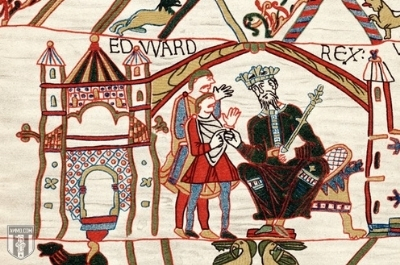Cultural Superiority isn’t Racism: Why Western Values Underpin the World’s Best Countries
by Sam Jacobs, Ammo:

Elements of the left and their allies in the media are constantly driving this point home: White people are bad and so is the culture that they have created. Everything we value as a society is bad and, more than that, little more than an ex post facto justification for the subjugation of non-whites. Western culture is white culture, and all things white are bad.
But as with everything else which these elements of the left and their allies in the media push, this is simply false. While the overlap between white people – that is, people of European descent and some Christian populations in the Caucasus – and Western culture is undeniable, it is likewise undeniable that Western culture is no longer the exclusive domain of whites. What we can call, without the slightest bit of stretching the truth, Western culture is present not just in Western Europe, North America and Australia, but also in former British colonies such as Israel, Singapore and Hong Kong.
What’s more, a country simply being part of Europe does not make it “Western” in any meaningful sense. While there is a certain Western cultural continuum based around Christianity that extends from Lisbon to Vladivostok, it would be overly simplistic (and indeed, a bit demeaning) to label the post-Soviet countries as “Western.” They have a similar set of cultural values rooted in Christianity, however, even the introduction of democracy has not made many post-Soviet and post-colonial nations more liberal in the true sense of the word – open markets, an emphasis on free speech, strong private property rights, an independent, impartial judiciary, and the primacy of the individual over that of the group.
Throughout this article we will provide some terms to define what we mean by “Western culture.” We will also make the case that Western cultural values have a universal aspect in the sense that they can be applied with success anywhere in the world, that these values are objectively superior to other value sets at maximizing human freedom, quality of life, and potential, and that the belief in this superiority has nothing to do with “racism” in the sense that it is commonly understood by ordinary people.
One demonstration of the proof that these values are objectively superior is that “people vote with their feet”, as Dr. Jordan Peterson points out: “The fundamental assumptions of Western civilization are valid. Here’s how you know: Which countries do people want to move away from? Not ours. Which countries do people want to move to? Ours! Guess what, they work better. And it’s not because we went around the world stealing everything we could get our hands on. It’s because we got certain fundamental assumptions right – and thank God for that.”
What Are Western Values?
 Before going any further, it is necessary to define what we mean by “Western values.” Indeed, what we mean by this is very specific and has a basis not in the West at large, but specifically in Anglo-Saxon culture. Virtually all of the values that we will identify in this article as being “Western” are perhaps more accurately termed “Anglo-Saxon values.” However, as the former term is more concise, succinct and in greater general use, we will use “Western values” throughout this article.
Before going any further, it is necessary to define what we mean by “Western values.” Indeed, what we mean by this is very specific and has a basis not in the West at large, but specifically in Anglo-Saxon culture. Virtually all of the values that we will identify in this article as being “Western” are perhaps more accurately termed “Anglo-Saxon values.” However, as the former term is more concise, succinct and in greater general use, we will use “Western values” throughout this article.
So what are these values? What is their origin? Where do they come from?
Again, it is our belief that what we call “Western values” are rooted firmly in the Anglo-Saxon tradition above all else. The formalization of these values can be found in the Magna Carta, but this simply codifies values that had been practiced in long standing in post-Anglo-Saxon Britain and likely long before it in some sense, going back to the days when the Angles and Saxons roamed the border regions between what is now Germany and Denmark.
While the Magna Carta is a complicated document, for our purposes it means something succinct and simple: it means that the king is not above the law.
There are a number of principles that flow from this general recognition that form the bedrock of Western civilization: Legal norms apply to everyone regardless of social class. The right to a fair trial by a jury of one’s peers and the right to face one’s accuser in open court. The right to one’s own property and the right to defend that property using deadly force. While these rights have all been hemmed in – in extreme ways in some cases, particularly since the events of September 11, 2001 – the point is that they form the bedrock of our legal structure and value culture in the West.
To boil this down to a single sentence: the West believes that men have the right to life, liberty and the pursuit of happiness and that these rights can only be deprived through due process of law. Both national constitutions and prevailing moral attitudes prevent angry mobs or powerful oligarchs from systematically depriving unpopular and powerless minorities of their rights.
Are Western Values Universal?
Western values are not universal in the sense that they will eventually be arrived upon by all cultures given enough time. They are not, contra Francis Fukuyama, an endpoint of history, a teleological goal post that all of humanity has been moving toward for its entire existence. It comes out of a very specific lineage, the Anglo-Saxon culture of yeoman farmers, freeholding lords, restive barons and, more than anything else, a total rejection of the notion of authoritarian kings who could rule at their whim without, at the very least, the consent of the men providing armed bodies for their war efforts and paying the lion’s share of taxes.
But perhaps Western values are universal in another, different respect. Consider what we said earlier: These values are by no means limited to the Anglosphere, though they do seem to be strongest in former British colonies – North America, Australia, Israel, Singapore, Hong Kong. These values manifest in different ways in each of these places and it would be more than a little odd if they didn’t.
Property Rights
However, the basic notion that there are a set of legal norms applying to everyone and, perhaps more importantly, that property rights are as important as other rights such as free speech, seem to have a universality about them. By this we mean that everywhere they have been put into practice, they have yielded impressive results in allowing human society to reach a greater potential while also providing better results for greater numbers of people.
Why does this matter? Well, Communist nations have historically raised living standards dramatically. Compare Russia during the waning days of the Romanovs to the Soviet Union in the 50s, 60s and 70s, or China today to China 70 years ago. But this is only impressive if you ignore the failure of Communism with regard to the rights of the individual and the rather sterile record of Communists with regard to innovation and invention. Sure, the Soviets beat America in the space race by putting a few dogs and satellites in the air – and then promptly did nothing else. Similarly, China is known far more for stealing Western intellectual property than it is for innovating its own.
Quality of Life
Innovation is necessary for both maintaining quality of life for large and growing populations, and for increasing quality of life. Again, China presents an important test case in what happens in a growing economy without transparency, an emphasis on the rights of the individual and the freedom to innovate that comes with an open, liberal economy: China’s one-child policy, which has been demographically disastrous beyond the humanitarian considerations, as well as its environmental degradation are both symptoms of a society that has become aggressively anti-liberal, stifling innovation.
Indeed, the results are plain to see: Of the ten countries in the world with the best quality of life, three of them are former British colonies – Canada came in at number one, Australia and New Zealand. One was in personal union with Britain (the Netherlands), four are Nordic countries with a similar emphasis on the rights of the individual and due process (Sweden, Denmark, Norway and Finland), and one is arguably the country in the world with a value system most closely resembling that of the Anglo-Saxons (Switzerland). Former British colony Singapore comes in at number 20, behind only Japan and China (which includes Hong Kong – and we wonder how much lifting that former British Crown Colony is doing for the People’s Republic) in Asia. Malaysia and India, both former British colonies, come in the top 30, beating out even a number of European countries outside of what we have defined as “the West,” such as Russia, Bulgaria and Slovakia.
Quality of life is an important metric because it includes non-material and non-economic factors. How subjectively happy are people? Are they satisfied with their lives or are they simply awash in money? Do they want to have children? Are they invested in society through mechanisms such as home ownership? All of these questions will yield a far more accurate picture of a country’s quality of life than simply looking at their GDP or per capita income.
Nobel Laureates
There are other ways of demonstrating the kind of cultural superiority that we are talking about. One of these is by looking at the countries who have produced the most Nobel Laureates: Despite the prize being of Norwegian extraction, two Anglosphere countries, the United States and the United Kingdom, absolutely dominate the rest of the world with regard to winning Nobel prizes: Of the 866 individuals who have received Nobel prizes as of 2020, 516 of them (nearly 60 percent) have been from these two countries.
All five of the top five slots are occupied by Western nations, with these five countries (the United States, the United Kingdom, Germany, France and Sweden) making up a whopping 83 percent of all recipients. Within the top ten, we see an additional three Western countries (Switzerland, Canada and Austria) and the share of Western countries in the top ten expands to fully 92 percent of all Nobel prize recipients.
This achievement is so lopsided that it must be discussed by anyone seriously considering this topic.
Technological Achievements
Technological achievements are difficult to quantify. What one considers to be an important technological achievement might be rejected by another as insignificant. However, this list created by The Atlantic is not a terrible representation of the most important technological achievements since the invention of the wheel. While nearly all of these were invented somewhere on the continent of Europe, what is more striking and important is how many of them were created in the West in the way that we have defined it – i.e., those cultures most embracing the values summarized in the Magna Carta and its extrapolations.
Corruption and Transparency
Finally, there is the matter of corruption and transparency in government. The Corruption Perceptions Index ranks 180 different nations around the world in terms of transparency, accountability, general fairness and other important factors. Of the top ten countries for 2019, nine are in Europe. The one that is not is the former British colony of Singapore, a country that is light on democracy but heavy on freedom, transparency, accountability and the rule of law. Former British crown colony Hong Kong – thankfully ranked separately from the People’s Republic of China – comes in at number 16, ahead of Japan, Ireland and Belgium. Indeed, the two Asian former British colonies come out ahead of the United States according to the terms established by the Corruption Perceptions Index.
One of the reasons for America’s low rank among Western countries is because Americans often watch in disbelief as top government officials leave public service and cash in on their expertise in the private sector, regardless of the crimes they committed while in office – whereas in a place like Sweden, when a politician is caught violating the public’s trust for even minor infractions like drunk driving, they immediately resign. Consider how Edward Snowden and Julian Assange are fugitives facing charges while General David Petraeus (who provided his illicit lover and favorable biographer information so secret it defied classification, including the names of covert operatives and the president’s private thoughts on matters of strategic concern), former director of the NSA General Keith Alexander (who lied under oath to Congress and the courts about the NSA spying on U.S. citizens), and former CIA Director James Clapper (who also lied under oath to the Senate Intelligence Committee in order protect his agency from oversight) all breathe free air.



